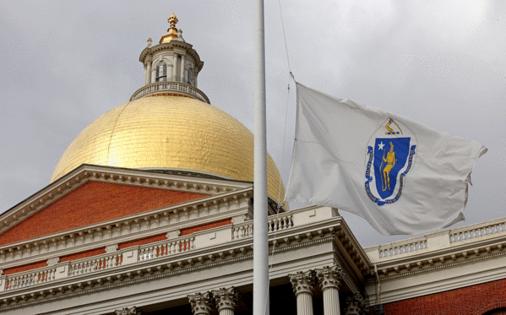Massachusetts bill seeks to raise juvenile age to 21
Published in News & Features
BOSTON — Legislation has been filed on Beacon Hill that would raise the age of Juvenile Court jurisdiction from 18 to 21 years old, a bill police chiefs argue “raises serious” public safety concerns.
The bill (H. 1923), filed by state Reps. James J. O’Day, D-West Boylston, and Manny Cruz, D-Salem, which will be taken up by the Joint Committee on the Judiciary on Tuesday, would place criminal offenders up to the age of 21 into the Juvenile Court system. Rather than be tried and sentenced in the state’s adult criminal system, these juvenile offenders would instead be provided access to mental health and behavioral programming offered by the Department of Youth Services.
“The brain doesn’t fully develop until around the age of 24 or 25. So, we have young people, and I sort of look at my own behavioral interactions when I was a younger person. You know, it was easier to make a snap, quick decision without thinking much about it,” Rep. O’Day told the Herald. “This bill is hopefully going to be able to break the cycle of juvenile behavior and delinquent behavior. Yes, you’re taken off the street, but you won’t just be put into a cell and forgotten about. You’re put into an environment where you’re going to be educated and rehabilitated.”
Supporters of the legislation, called An Act to Promote Public Safety and Better Outcomes for Youth cite studies in youth brain science and say it would lead to lower recidivism rates among young adults in Massachusetts.
A companion bill (S. 1061) has also been filed by state Senator Brendan Crighton, D-Third Essex. Crighton presented his bill before the Judiciary Committee in September, later posting on his official Facebook page that the legislation would “allow for young people to be held accountable while also ensuring they have access to appropriate programming that will decrease recidivism rates and improve outcomes for all.”
Retired Juvenile Court Judge Jay Blitzman testified in support of the senate bill, urging the committee to “follow the science and the recidivism data, which best supports positive youth development and will improve public safety outcomes.”
Opponents argue it could potentially lead to an increase in crime statewide, citing lighter consequences as a potential motivator for reoffenders.
The Massachusetts Chiefs of Police Association submitted written opposition to the bill on Tuesday to the Judiciary Committee, calling it “unnecessary, costly, and operationally impractical.”
“While the Association supports efforts to strengthen rehabilitation, diversion, and community-based services for young offenders, the proposed expansion of juvenile jurisdiction in this bill to include individuals up to age 21 raises serious concerns regarding public safety, accountability, and the practical administration of justice,” the Association’s testimony read. “At 18, individuals can vote, serve in the military, sign contracts, and even sit on a jury to determine someone else’s guilt, yet under this proposal, they would not be fully responsible for their own criminal actions.”
O’Day says the Association’s concerns are not likely to come to fruition, saying “that’s an unfortunate mentality to have. If you are convicted of a heinous crime there is still the ability of the judge to sentence to an adult type of prison. If we’re talking about murder and those types of horrible crimes, this bill does not impact that.”
The Boston Herald has reached out to the Association for further comment.
State lawmakers previously voted to raise the Juvenile Court age in 2013, when the legislature voted to move 17-year olds facing charges out of the criminal court to be tried as juveniles.
Representative Cruz did not respond to a request for comment.
----------
©2025 MediaNews Group, Inc. Visit at bostonherald.com. Distributed by Tribune Content Agency, LLC.







Comments